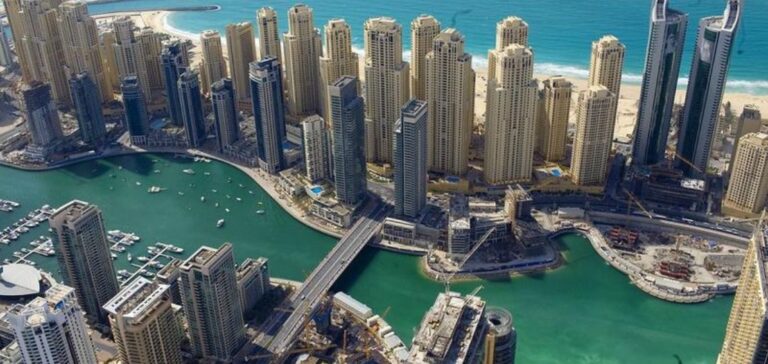EWEC has released a statement on future capacity requirements 2023-2029 for Abu Dhabi and the United Arab Emirates. The report recommends an increase in total solar power generation capacity by 606% to 7.3 GW, as well as the development of 300 MW of battery energy storage systems (BESS). The report also recommends continued investment in low-carbon reverse osmosis (RO) water desalination technology to enable more than 90 percent of total water demand to be met with RO by 2030.
The development of solar energy and energy storage by battery
The report published by EWEC outlines future generation capacity requirements for Abu Dhabi and beyond. The report projects the need for an additional 3 GW (AC) of solar power capacity by 2029, in addition to the 1.5 GW (AC) of solar power purchased from Al Ajban Solar PV once it reaches commercial operations in 2026. The report also recommends procuring a minimum of 300 MW of battery capacity with one-hour storage depth by 2026 to improve system operability and enhance overall grid stability.
Increased solar power capacity and battery energy storage will see the company’s average carbon dioxide intensity from electricity generation drop from 0.33 kg/kWh in 2019 to approximately 0.19 kg/kWh by 2029.
Othman Al Ali, president and CEO of EWEC, emphasized the company’s commitment to advancing the UAE’s energy transition while continuing to ensure a safe and reliable supply of water and electricity. He also noted that the growing portfolio of renewable and clean energy projects is accelerating the decarbonization of the country’s energy sector in line with the UAE’s Net Zero by 2050 strategic initiative.
Increase in thermal capacity
As part of the transformation of the energy mix towards an energy transition, EWEC has planned thermal power plant projects using gas turbine technology. These projects are designed to replace 7 GW of thermal cogeneration plants whose contracts are expiring and to meet reserve margin requirements and growing energy demand. To this end, the statement recommends securing 9 GW of thermal capacity from open cycle or combined cycle gas turbines through asset expansion, reconfiguration or new development.
Intensive low-carbon reverse osmosis capacity for sustainable water production
The EWEC statement report also highlights the need to develop two low-carbon RO desalination plants: the Mirfa 2 reverse osmosis plant with a production capacity of 120MIGD of drinking water, and the Shuweihat 4 reverse osmosis plant, which will have a production capacity of 70MIGD. The Abu Dhabi Islands RO 100MIGD desalination project in 2027 is also planned to reduce overall sector costs, with the unit cost of water from this new system approximately 60% lower than the current average cost of the water production system. EWEC projects that more than 90% of its water production will come from RO water desalination plants by 2030, with a reduction in water production emissions intensity from 11.5 kg/m3 in 2019 to an estimated 1.4 kg/m3 by 2029.
A low-carbon energy transition for secure, sustainable, and low-cost water and electricity supplies
EWEC aims to lead Abu Dhabi’s transition to low-carbon water and power generation. Bruce Smith, executive director of strategy and planning at EWEC, emphasized the importance of the report’s in-depth modeling analysis in identifying significant system cost and carbon emission reduction benefits.
As such, EWEC is working to further diversify the energy mix and increase the share of renewable energy and low-carbon reverse osmosis to ensure a safe, sustainable and cost-effective supply of water and electricity in Abu Dhabi and beyond.






















